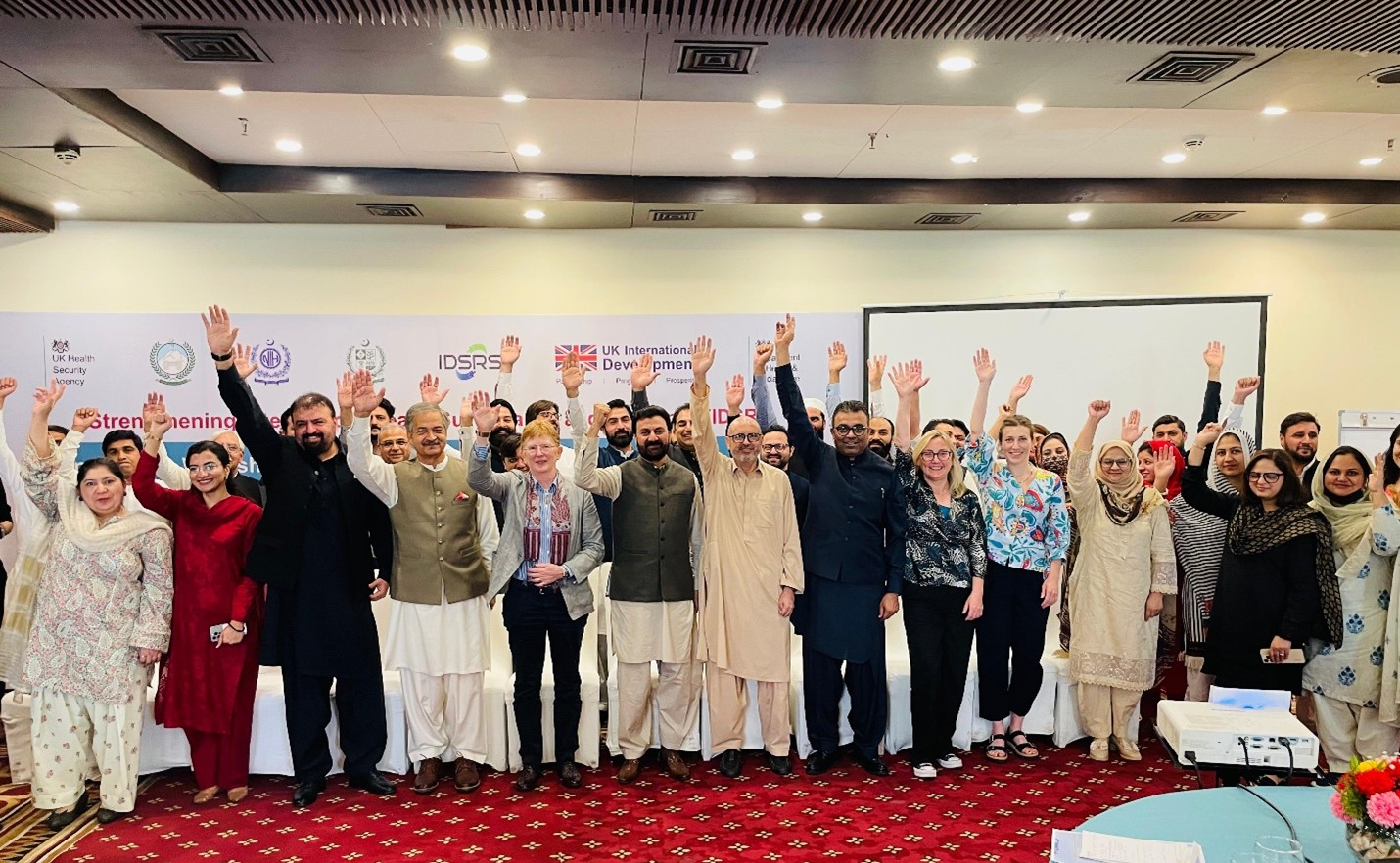
A two-day workshop in July has delivered significant advances in Pakistan's ability to detect and respond to disease outbreaks, with new community-based surveillance system now ready for national rollout.
The National Institute of Health (NIH), in collaboration with the UK Health Security Agency (UKHSA) International Health Regulations Strengthening Project (IHR-SP) brought together health officials from Khyber Pakhtunkhwa province and Mardan district to finalise groundbreaking surveillance tools that could transform how Pakistan identifies health threats at the community level.
The workshop achieved three critical outcomes: completion of comprehensive training modules for Community-Based Surveillance (CBS), refinement of the 7-1-7 outbreak response framework for local use and enhancing CBS reporting tools for integration into the national health system.
7-1-7 Rapid Response Framework Takes Shape
Central to the discussions was the 7-1-7 approach - a proven model that aims to detect disease outbreaks within seven days, verify them within one day, and launch response measures within seven days. The presentation demonstrated how this framework had already been tested against recent outbreaks in the Mardan district, providing valuable insights for wider implementation.
Community Health Workers at the Frontline
The workshop also drew on extensive field research, including interviews with key informants and focus group discussions conducted with stakeholders, including supervisors of lady health workers (LHWs), health information system coordinators, media representatives and public health officials. These findings, presented by Dr. Zeeshan Baig, revealed both opportunities and challenges in strengthening Pakistan’s CBS capabilities.
Eleven CBS training modules were reviewed and refined during the workshop, covering everything from priority disease identification fundamentals, advanced data verification techniques, applying the 7-1-7 model in real world settings, the role of LHWs and volunteers and much more.
The group discussions, facilitated by Nadia Nisar and Dr. Najma Javed allowed participants to provide feedback and suggest improvements to the content and delivery of these modules to ensure they are contextually appropriate and actionable whilst building reliable, timely and interconnected surveillance systems.
Digital Integration Breakthrough
A significant development was the live demonstration of how new community reporting tools will integrate with Pakistan's national District Health Information System 2 (DHIS2) digital platform. This system will enable real-time data flow from remote communities directly to national health authorities, dramatically reducing response times to potential outbreaks. Participants actively contributed feedback to enhance this real-time data reporting from the community to ensure data quality whilst maintaining rapid information flow.
National Rollout on the Horizon
The workshop concluded with firm commitments to scale up community-based surveillance across Pakistan from the participating partners.
UKHSA Country Lead, Dr Sartaj emphasised that “This workshop marks a pivotal moment in Pakistan’s journey toward a responsive and resilient health system. By integrating community-based surveillance with national platforms like IDSR/DHIS2, we are not only enhancing early detection but also empowering local communities to be the first line of defence against public health threats.”
The KP Health Department expressed gratitude to UKHSA for its continued support in strengthening the disease surveillance system in Pakistan
This partnership represents a significant step forward in Pakistan's health security preparedness, moving from reactive disease management to proactive, coordinated community-level detection and response. The new systems are designed to strengthen the country's resilience against future health threats, enhancing preparedness, enabling early detection and ensuring a timely and coordinated response.
Also By
- First-of-its-kind Community-Based Surveillance Training in Mardan to Boost Pakistan’s Disease Preparedness and response
- Emergency disease surveillance system in action for recurrent floods in Pakistan
- Expanding Sindh’s Integrated Disease Surveillance and Response Network (IDSR) Laboratory Network to private laboratories
Useful Resources
Related Articles
-
From vision to action: Sindh’s IDSR Lab Network Review marks key progress in Pakistan’s IDSR journey
BY Dr Muhammad Sartaj -
Gilgit-Baltistan launches new laboratory network in efforts to strengthen Integrated Disease Surveillance and Response across Pakistan
BY Dr Muhammad Sartaj, Sumera Abid -
Building a stronger health partnership with academic institutions for strengthening IHR in Pakistan: IDSR training for Master Trainers at The Institute of Public Health, Lahore
BY Dr Muhammad Sartaj -
Pioneering training on “District Health Information System-2” to strengthen Integrated Disease Surveillance and Response System in laboratories in Sindh province of Pakistan
BY IHR -
Expanding Sindh’s Integrated Disease Surveillance and Response Network (IDSR) Laboratory Network to private laboratories
BY Sumera Abid, Dr Muhammad Sartaj

Please Sign in (or Register) to view further.